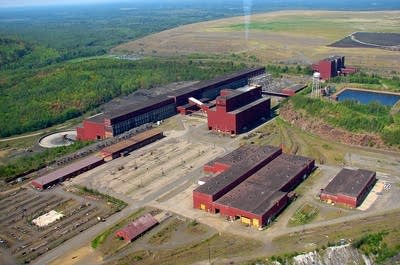Can Iron Range find balance on environment, jobs?

As the state considers proposals for copper-nickel mining, a new form of mining that has a history of causing pollution in other parts of the world, the question for many residents on Minnesota's Iron Range is how to create more jobs while protecting the environment.
On Friday, 300 people came to a state Senate committee meeting in Hibbing to talk about balancing efforts to protect the land with imperative to create jobs.
"In Northeastern Minnesota, the unemployment rate is 8 percent. But I can tell you in the building trades it's higher than that, 20 to 25 percent, which is not good," said John Grahek, president of the Iron Range Building and Construction Trades. "Our people are hurting, they need the jobs."
New mining projects, both traditional iron mining and the new copper-nickel mines, promise lots of construction jobs, and lots of spin-off jobs. Those are important as Iron Range cities try to keep small businesses going.
Create a More Connected Minnesota
MPR News is your trusted resource for the news you need. With your support, MPR News brings accessible, courageous journalism and authentic conversation to everyone - free of paywalls and barriers. Your gift makes a difference.
Doing so is difficult, said Lori Fedo, president of the Hibbing Chamber of Commerce, who told the committee about a long-time business in Hibbing that recently closed.
"One day, in the middle of the day, he turned the sign over to closed and locked the door," she said. "He never returned. His wife had become ill, and it broke my heart. If these mining projects had been under way, he would have still been in businesses. Please fix this problem."
The "problem," as many here see it, is that environmental review and permitting take a long time. Polymet, a proposed copper-nickel mine, has been under review for five years.
Both the Minnesota House and Senate are considering measures designed to streamline the processes. Gov. Mark Dayton last week signed an administrative order putting some of the same measures in place. Several industry representatives told the committees such change is urgently needed.
Wayne Brandt, an executive with the Minnesota Forest Industries and Minnesota Timber Producers Association, described a project that the UPM paper company considered for its plant in Grand Rapids. Brandt said the environmental review took more than two years, and the company ultimately decided not to build it. In contrast, the company did build a similar plant in Bavaria, in southern Germany.
"It took six months from beginning of process," he said. "Not China, not Indonesia. Permit requirements were more stringent than in Minnesota, but they could get a decision made."
Some area residents, however, cautioned against leaning to heavily in favor of mining operations.
LynnAnne Verper, who lives in Ely, said one reason small businesses in Hibbing maybe be struggling is that Hibbing has a Wal-Mart store. She also questioned whether mining could ever produce economic stability for the region.
"I'm 40 years old. Polymet proposes to operate for 20 years; that's half of my lifetime," she said. "These are not jobs for generations, as some propose. It would perpetuate the boom and bust cycles we're all familiar with on the Iron Range."
Another criticism of the idea of speeding up permitting came from Brad Sagen of Fall Lake Township. He said one reason the Polymet review is taking so long is that the company and the state agencies like the Department of Natural Resources are doing a poor job. The federal government blasted the draft Environmental Impact Statement as inadequate.
"How could a state agency, in this case the DNR, have permit that bad a proposal to be signed off?" Sagen asked. "That to me is a proper function for a legislative committee, to investigate how state agencies could fail in that manner."
State Sen. Bill Ingebrigtsen, R-Alexandria, the Senate author of the streamlining legislation, said he heard some conflicting ideas on the issue. But he said that's the job of legislators -- to resolve conflicts.
